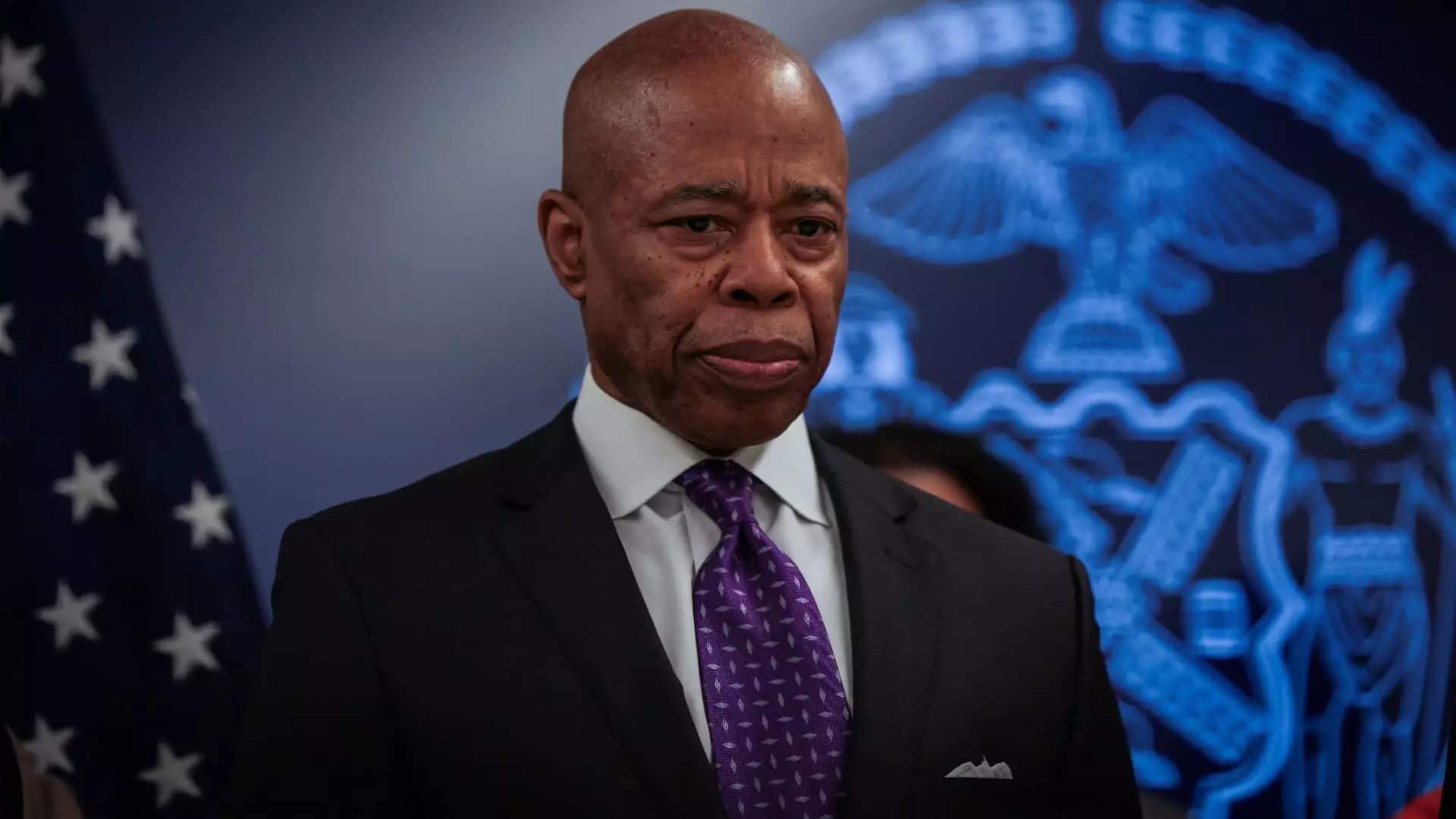In a stunning twist that reverberates through the political landscape of New York City, the corruption case against Mayor Eric Adams is thrust into uncertainty. On a recent Friday, U.S. District Judge Dale Ho decidedly refrained from dismissing the charges against the Democratic mayor, albeit postponing the trial indefinitely. This decision arose from a request by the Justice Department, which has added a layer of complexity to a narrative already riddled with controversy and political upheaval.
The federal government’s entrance into this saga began on February 14, when officials sought the dismissal of the charges against Adams. The backdrop to this maneuver is particularly striking: several prosecutors opted to resign rather than comply with orders dictating the dismissal of a case initially brought forth during the Biden administration. This power struggle highlights the ongoing tensions between differing administrations and raises questions about politicization within the Justice Department. The Acting Deputy Attorney General Emil Bove’s directive, perceived by many as stemming from partisan loyalty to former President Donald Trump, adds fuel to the fire of suspicion that the case might be influenced by the shifting tides of political lineage.
The Trump administration’s rationale for dismissing the charges was rather revealing – they argued it would free Adams to better assist in enforcing stringent immigration policies. Such a claim does not just appear dubious; it also signals a potential quid pro quo arrangement that straddles the line between public interest and political maneuvering.
The situation has sparked a political crisis of unprecedented proportions in New York City, where the stakes are high for both Adams and the broader Democratic party. Senior party members have vehemently voiced their concerns, suggesting that dropping the charges may render Adams a puppet of Trump’s administration, compromising his authority and independence. This is particularly consequential given that Adams is currently campaigning for re-election, a pursuit now overshadowed by allegations of bribery and corruption originating from his relationships with Turkish nationals seeking political leverage.
Such allegations, stemming back to his administration’s dealings, significantly tarnish Adams’s political image. He maintains a staunch not guilty plea, arguing that the charges are unfounded and politically motivated—a retort echoed by many who see the administration’s actions as retaliation for Adams’s vocal criticism of Biden’s immigration stance.
The fallout from Bove’s directive culminated in significant resignations within the Attorney’s office, including that of Danielle Sassoon, the then-acting Manhattan U.S. attorney. Sassoon’s resignation illustrates the ethical dilemma faced by prosecutors, who are now left grappling with an administration that appears willing to manipulate judicial proceedings for political gain. Following suit, six other prosecutors stepped down in protest, signaling a rare moment of unity against perceived politicization within federal legal ranks.
The tensions came to a head during a court hearing where Bove dismissed claims of a quid pro quo between Adams and Trump’s administration, while simultaneously asserting the Justice Department’s discretion in determining the appropriateness of ongoing prosecutions. His language raises critical questions about the intersection of law and politics—where does the pursuit of justice yield to political expediency?
As the situation escalates, calls for accountability echo across New York’s political landscape. Governor Kathy Hochul and various Democratic leaders have urged Adams to resign, citing the damaging impact of the ongoing scandal on the city’s governance. Although Hochul has refrained from using her executive powers to remove Adams, she advocates for enhanced oversight of his office, an attempt to restore public confidence amid a crisis of integrity.
The implications of this case extend beyond Adams; it encompasses the broader narrative of political accountability and the struggles against corruption within the layers of government. As New Yorkers await clarity on Adams’s legal fate, they are left to ponder the intricate dance of political interests, ethical governance, and the quest for justice in a city that finds itself at a critical juncture.
In summation, the unfolding events surrounding Mayor Eric Adams evoke a deeper conversation about the integrity of political systems and the dangers of entwining law with political strategy. The citizens of New York City deserve transparency and accountability from their leaders, especially in such turbulent times.

